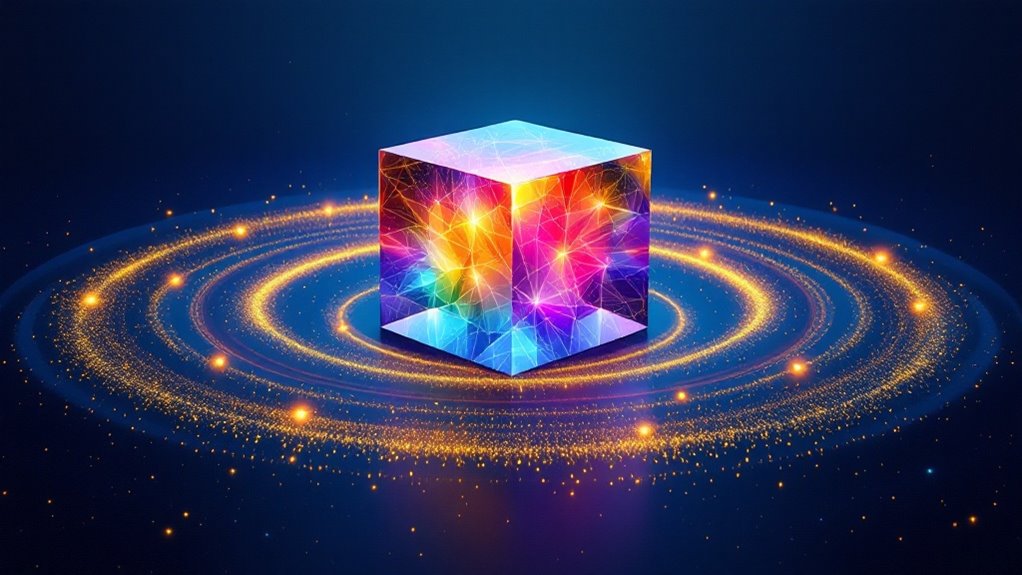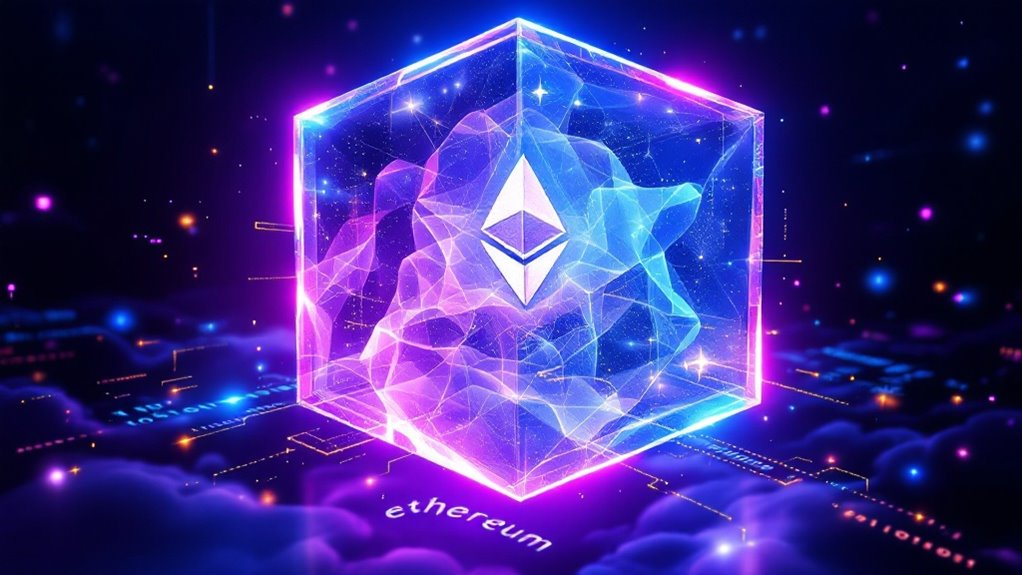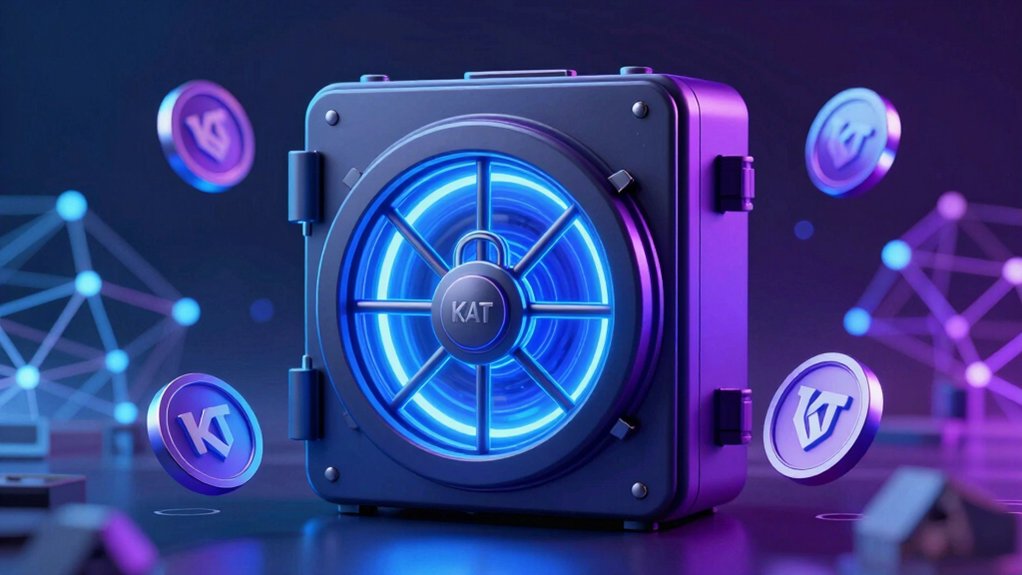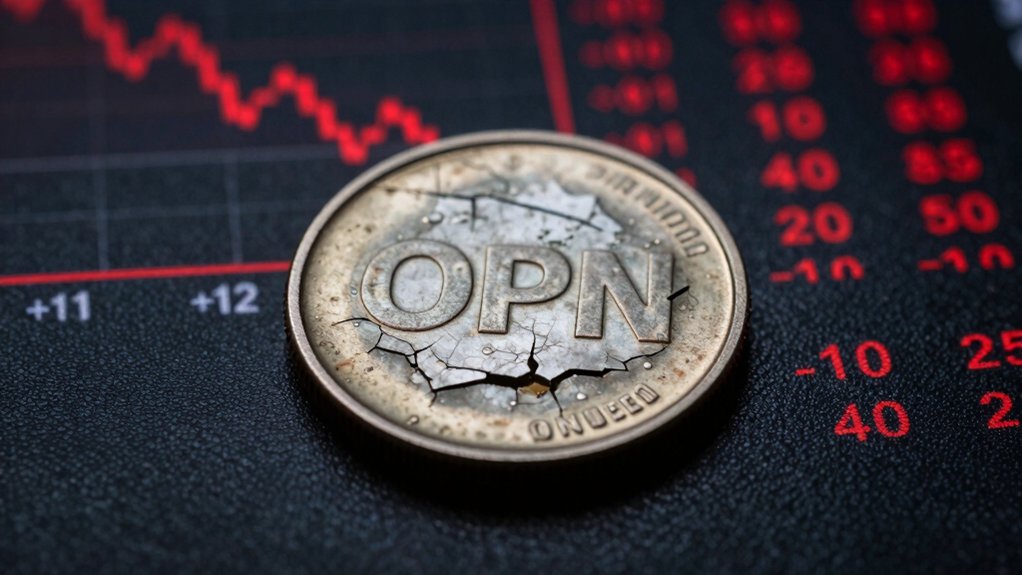NFT royalties enable digital artists to earn ongoing income from their creations through automated blockchain payments. When an NFT is resold on the secondary market, smart contracts automatically channel a percentage (typically 2-10%) back to the original creator, eliminating manual payment tracking. This innovative system helps artists participate in their work's future success, though marketplace policies and enforcement remain challenging. The evolution of NFT royalties continues to reshape how creators capture value in the digital age.

How do artists continue earning from their digital creations long after the initial sale? NFT royalties offer a revolutionary solution, automatically channeling a percentage of every resale back to the original creator. Like a digital breadcrumb trail that leads back home, these smart contract-powered payments guarantee artists can participate in the future success of their work.
The mechanics are elegantly simple, yet powerful. When artists mint their NFTs, they embed royalty terms directly into the blockchain's DNA. These digital agreements spring to life with each secondary sale, instantly calculating and delivering the creator's share – typically between 2% and 10% of the sale price. No paperwork, no chasing payments, no awkward conversations. The blockchain handles it all with the precision of a Swiss watch. Leading projects like Yuga Labs demonstrate the potential, having earned nearly $150 million in royalties from their collections. Smart contracts ensure automatic distribution of royalty payments without intermediaries. Understanding the distinction between token ownership and creative rights is crucial for both creators and collectors.
Blockchain-embedded smart contracts automate royalty payments, letting creators earn passively while technology handles the heavy lifting.
However, the NFT royalty landscape isn't all digital roses. While platforms like OpenSea cap royalties at 10% and Rarible allows up to 50%, some marketplaces have begun making royalties optional. It's like building a house on shifting sands – the foundation of creator earnings remains uncertain. The challenge lies in balancing fair compensation with market dynamics, as high royalty rates might discourage trading altogether.
Technical solutions continue evolving, with standards like EIP-2981 providing a framework for royalty information on Ethereum. Yet the ecosystem faces growing pains as it wrestles with questions of enforcement and composability. Some creators have turned to allowlist models, restricting their NFTs to marketplaces that honor royalties, while others explore time-limited approaches.
Looking ahead, the future of NFT royalties stands at a crossroads. The technology promises a more sustainable creator economy, where artists can build lasting careers through their digital works. But questions linger about enforcement mechanisms and market effects. As the Web3 landscape matures, new models may emerge that better balance the interests of creators, collectors, and platforms.
For now, NFT royalties remain a fascinating experiment in reimagining how creators capture value in the digital age.
Frequently Asked Questions
Can NFT Royalties Be Changed After the Initial Smart Contract Deployment?
NFT royalties can be modified after deployment through proxy contracts, platform-specific tools, or royalty registries. However, changes may require specific mechanisms built into the original contract or marketplace support.
How Do Different NFT Marketplaces Handle Royalty Enforcement?
Different NFT marketplaces vary in their royalty approaches. OpenSea and Blur offer optional royalties with minimum fees, Magic Eden lets buyers choose rates, while Nifty Gateway strictly enforces platform-level royalty requirements.
What Happens to Royalties When an NFT Is Sold Privately?
When NFTs are sold privately through marketplace platforms, royalties are typically still enforced by smart contracts. However, direct wallet-to-wallet transfers or off-platform deals may bypass royalty payments to creators.
Are NFT Royalties Tax-Deductible for Buyers?
NFT royalties are generally not tax-deductible for buyers as a separate expense. They are considered part of the NFT's acquisition cost and are added to the cost basis for future capital gains calculations.
Can Creators Receive Royalties in Different Cryptocurrencies Than the Sale Currency?
Creators can receive royalties in different cryptocurrencies through conversion services, decentralized exchanges, and platform-specific options. However, some marketplaces restrict payments to specific currencies like ETH or platform-native tokens.









